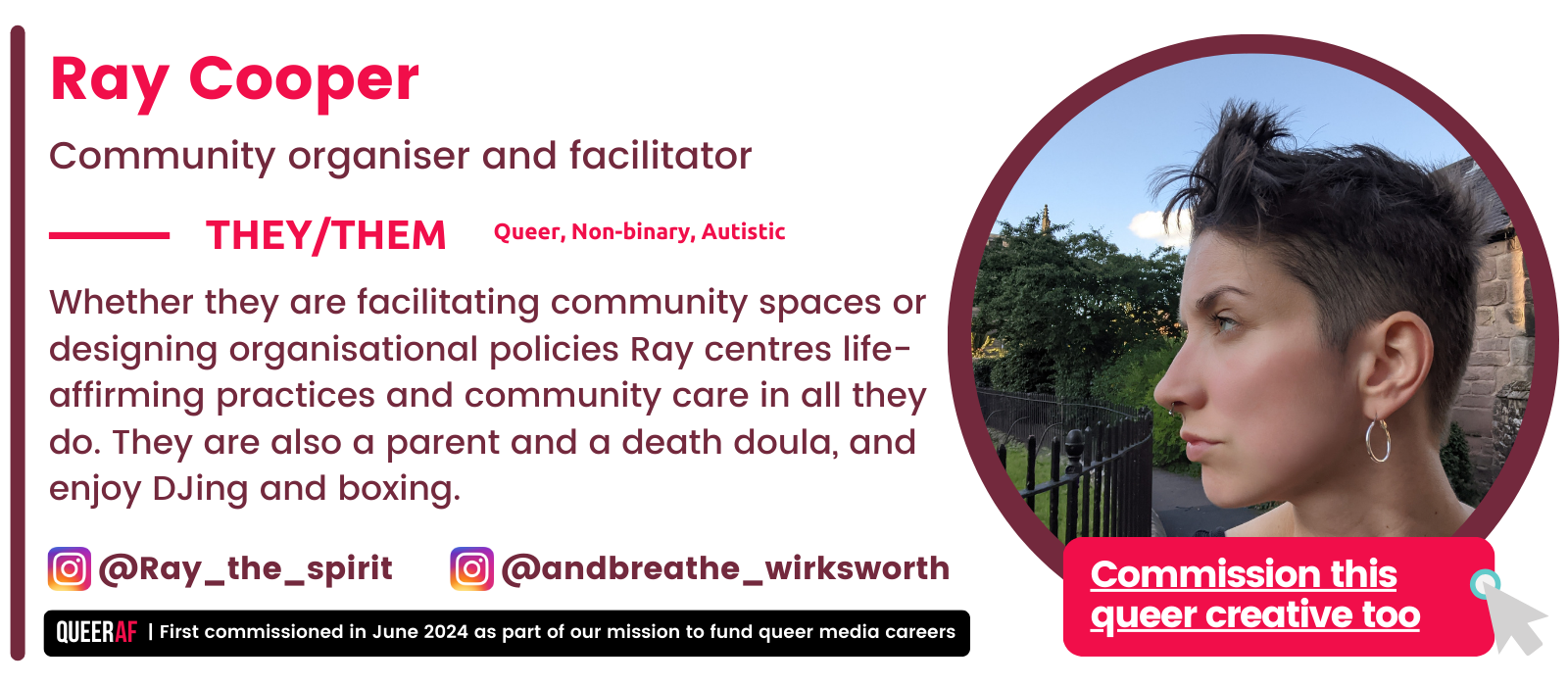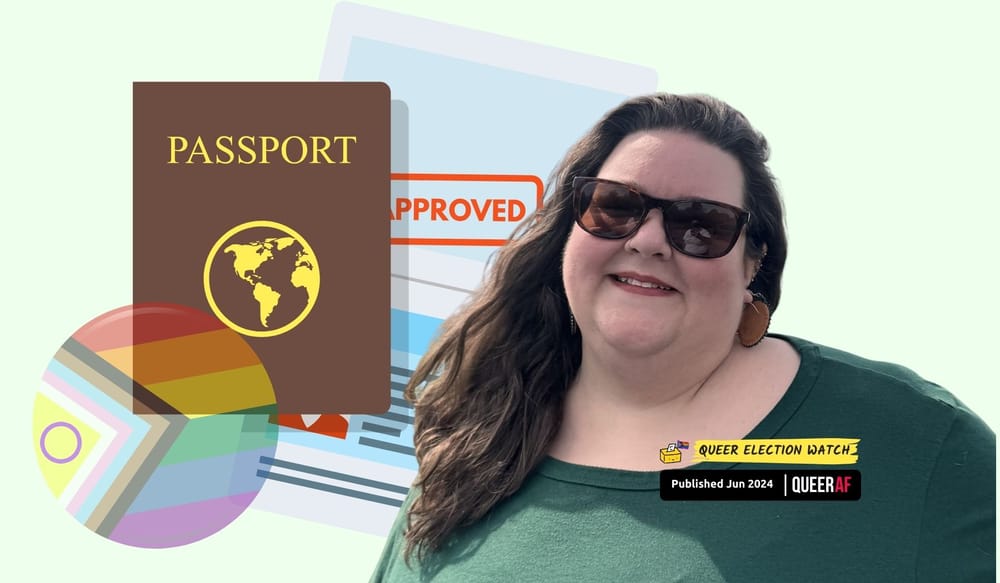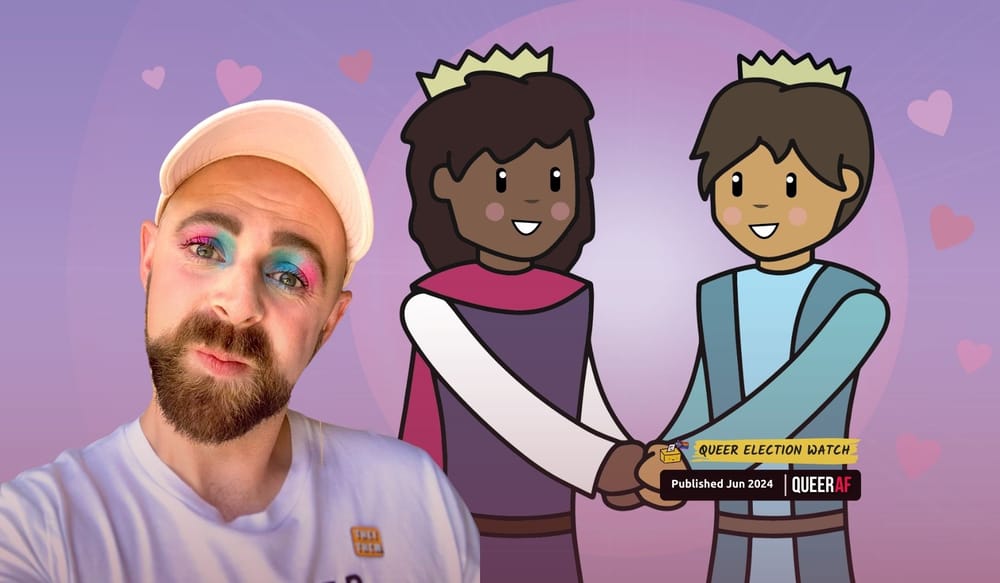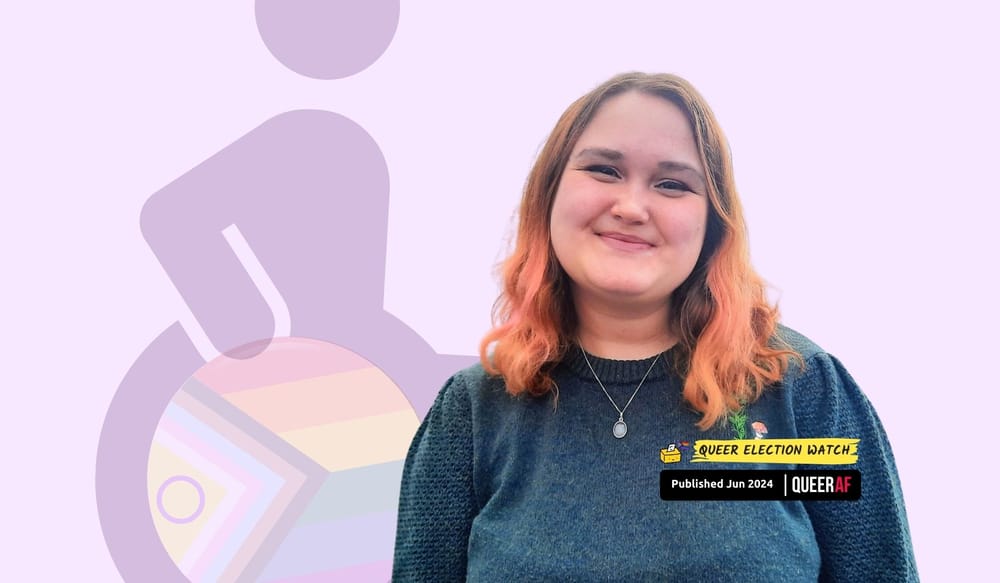
One of the most vivid images that comes to mind when I think of past elections is of a politician in a suit and a hard hat on a construction site, promising to ‘rebuild Britain’. As a queer, trans person in the process of setting up a housing co-operative, this type of politics couldn’t resonate with me less.
The current housing crisis has disproportionate effects on the LGBTQIA+ community, but most parties' lack of consideration for the queer community shines through in their bland and uninspiring housing policies.
Almost 1 in 5 LGBTQIA+ people have experienced homelessness in their lifetime. That figure rises to 1 in 4 for Trans people. Many LGBTQIA+ people are ‘kicked out for coming out’ - and not even just from family homes.
For many of us, whether we have a safe home is intrinsically linked with how acceptable we are in the eyes of family and landlords, despite the Equality Act providing some level of legal protection over housing discrimination.
As a result, while the Conservatives are busy regurgitating Thatcherisms about a ‘home-owning democracy’ as the solution to the housing crisis, many of the queer community are entirely reimagining what home means.
Queer people have a long history of centring community care in our lives to fill the void left by forms of active discrimination or politicians’ simple lack of imagination.
Queers have been leading the way with alternative models of support and care through non-traditional cohabitation arrangements for many decades. And while communal living is born out of necessity for some, for others it is incredibly desirable.
Many of us raise children in non-nuclear families, some of us are polyamorous and have multiple nesting partners, and others have adopted large chosen families.
Yet investing in infrastructure to better support collectively-owned multiple-occupancy households is not a policy you’ll find in any of the political parties’ housing plans.
Ultimately, too many people still see housing primarily as an opportunity to generate wealth, whether it’s property developers, private landlords or the rapidly growing sector of for-profit social housing providers.
New measures from Labour, such as increasing social housing and the Greens talking about rent controls might help - but we need a more significant shift in how we think about housing as a society.
I’ve seen first-hand, through networks such as Radical Routes, that it is possible for groups of people to take property out of private hands and into collective ownership through fully mutual housing co-operatives (many of which are queer-centred).
Housing co-operatives might seem like some farfetched thing here in the UK, where they currently only make up a fraction of UK housing - just 0.2% live in some form of co-op.
But it’s a very different story in other countries - like Sweden, where that figure is a whopping 23%! This is just one of the many possible approaches to housing that are both queer-inclusive and incredibly sustainable.
Perhaps if the Political parties were to stop arguing about whether they are going to build 1.6 or 1.5 million homes over the next four years and think beyond the cisheteronormative nuclear household, they might discover some other solutions to the housing crisis.
Solutions that actually meet people’s needs, redistribute wealth, and reduce our consumption as a society.
Stay tuned to Queer Election Watch for more on the issues that matter to you. Check out the most recent policy check, on conversion practices, on DIVA and QueerAF now.

For media as diverse as we are.
"As someone that didn't go to University I often doubt myself as a capable communicator, especially as the first Director I worked for at the Guardian told me I'd never be eloquent enough if I didn't have a degree.
"But I can categorically say that the half hour editing and feedback chat with Jamie Wareham has built my confidence and given me far more valuable advice. What a profoundly beautiful thing QueerAF are doing within news & media."
That's what this week's creative, Ray Cooper said about our approach and support with this week's Queer Gaze article.
That's the power of our work; that's the power of our unique approach to journalism; that's what over 275 QueerAF members help us do.
Are you the next one to help us develop a new generation of LGBTQIA+ journalists who can work in the media, to change the newsroom so together - we can change the country?











